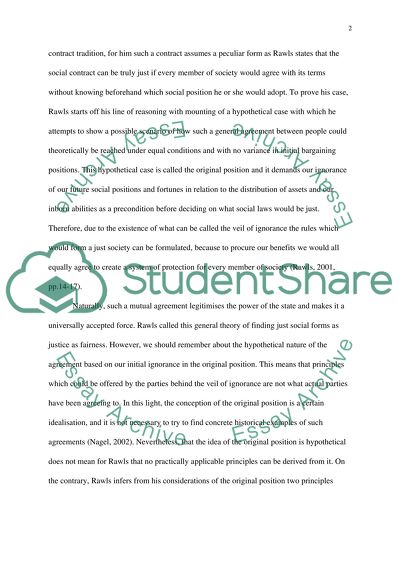Cite this document
(Philosophical Thoughts on the Notion of Justice Essay Example | Topics and Well Written Essays - 2000 words, n.d.)
Philosophical Thoughts on the Notion of Justice Essay Example | Topics and Well Written Essays - 2000 words. https://studentshare.org/philosophy/1535966-qsi-assume-for-one-thing-that-there-is-a-broad-measure-of-agreement-that-principles-of-justice-should-be-chosen-under-certain-conditions-rawls-is-it-a-f
Philosophical Thoughts on the Notion of Justice Essay Example | Topics and Well Written Essays - 2000 words. https://studentshare.org/philosophy/1535966-qsi-assume-for-one-thing-that-there-is-a-broad-measure-of-agreement-that-principles-of-justice-should-be-chosen-under-certain-conditions-rawls-is-it-a-f
(Philosophical Thoughts on the Notion of Justice Essay Example | Topics and Well Written Essays - 2000 Words)
Philosophical Thoughts on the Notion of Justice Essay Example | Topics and Well Written Essays - 2000 Words. https://studentshare.org/philosophy/1535966-qsi-assume-for-one-thing-that-there-is-a-broad-measure-of-agreement-that-principles-of-justice-should-be-chosen-under-certain-conditions-rawls-is-it-a-f.
Philosophical Thoughts on the Notion of Justice Essay Example | Topics and Well Written Essays - 2000 Words. https://studentshare.org/philosophy/1535966-qsi-assume-for-one-thing-that-there-is-a-broad-measure-of-agreement-that-principles-of-justice-should-be-chosen-under-certain-conditions-rawls-is-it-a-f.
“Philosophical Thoughts on the Notion of Justice Essay Example | Topics and Well Written Essays - 2000 Words”. https://studentshare.org/philosophy/1535966-qsi-assume-for-one-thing-that-there-is-a-broad-measure-of-agreement-that-principles-of-justice-should-be-chosen-under-certain-conditions-rawls-is-it-a-f.


